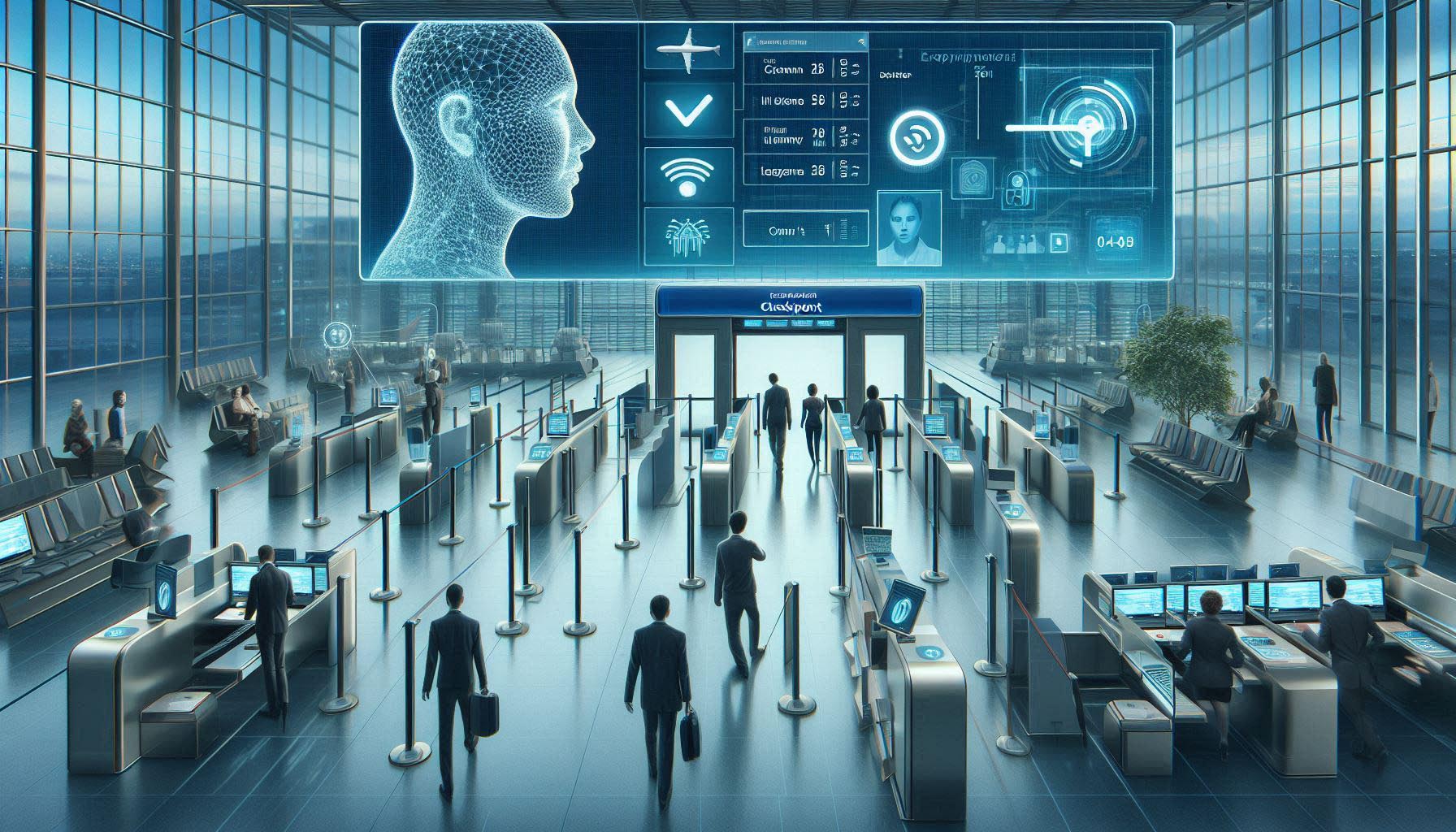The Future of Biometric Boarding Are Passports Becoming Obsolete
In an era where technology is advancing at breakneck speed, the way we travel is undergoing a dramatic transformation. One of the most exciting developments in the aviation industry is the rise of biometric boarding. From facial recognition to fingerprint scanning, biometrics is revolutionizing the passenger experience, making it faster, more secure, and more convenient. But as biometric boarding becomes more widespread, a pressing question arises: Are passports becoming obsolete? This article explores the future of biometric boarding, its benefits, challenges, and whether traditional passports will soon be a thing of the past.
What is Biometric Boarding?
Biometric boarding uses unique physical characteristics—such as facial features, fingerprints, or iris patterns—to verify a passenger’s identity. Instead of presenting a passport or boarding pass, travelers simply scan their biometric data at various checkpoints, from check-in to boarding gates. This seamless process eliminates the need for physical documents, reducing wait times and enhancing security.
Major airports around the world, including Dubai International Airport, Atlanta’s Hartsfield-Jackson, and Singapore’s Changi Airport, have already implemented biometric boarding systems. These systems are powered by advanced technologies like artificial intelligence (AI) and machine learning (ML), which ensure accurate and efficient identification.
The Benefits of Biometric Boarding
- Faster and More Efficient Travel
One of the most significant advantages of biometric boarding is its ability to speed up the travel process. Traditional check-in and boarding procedures can be time-consuming, especially during peak travel seasons. With biometrics, passengers can move through airports quickly, reducing congestion and improving the overall travel experience.
For example, Delta Air Lines has implemented facial recognition technology at select airports, allowing passengers to check bags, pass through security, and board flights using just their face. This has cut boarding times by up to 30%.
Example: A chart showing how biometric boarding reduces boarding times.
- Enhanced Security
Biometric data is unique to each individual, making it nearly impossible to forge or steal. This significantly enhances airport security by reducing the risk of identity fraud and unauthorized access. Additionally, biometric systems can be integrated with global watchlists, enabling authorities to identify potential threats in real-time.
- Improved Passenger Experience
Biometric boarding eliminates the need for passengers to carry multiple documents, such as passports, boarding passes, and ID cards. This not only reduces the risk of losing important documents but also makes the travel experience more convenient and stress-free.
- Cost Savings for Airlines
By streamlining the boarding process, biometric systems can help airlines reduce operational costs. Fewer staff are needed to manage check-in and boarding, and the risk of delays due to document verification is minimized. These savings can be passed on to passengers in the form of lower ticket prices.
Are Passports Becoming Obsolete?
While biometric boarding offers numerous benefits, the idea of passports becoming obsolete is still a topic of debate. Here’s a closer look at the arguments for and against this possibility:
Arguments for Phasing Out Passports
- Convenience: Biometric systems eliminate the need for physical documents, making travel more convenient.
- Global Standardization: As more countries adopt biometric systems, a global standard for identity verification could emerge, reducing the need for passports.
- Enhanced Security: Biometric data is more secure than physical documents, which can be lost, stolen, or forged.
Arguments Against Phasing Out Passports
- Legal and Regulatory Challenges: Passports are legally recognized documents that serve as proof of citizenship and identity. Replacing them would require significant changes to international laws and agreements.
- Privacy Concerns: Storing and sharing biometric data raises privacy issues. Many travelers are uncomfortable with the idea of their biometric information being stored in centralized databases.
- Technological Limitations: Not all countries have the infrastructure to support biometric systems. Until global adoption is achieved, passports will remain necessary.
Real-World Examples of Biometric Boarding
Several airlines and airports are leading the way in biometric boarding:
- Delta Air Lines: Delta has implemented facial recognition technology at airports in Atlanta, Detroit, and Los Angeles, allowing passengers to board flights using just their face.
- Emirates: The Dubai-based airline has introduced biometric boarding gates at Dubai International Airport, reducing boarding times and improving efficiency.
- Singapore Airlines: The airline has launched biometric boarding at Changi Airport, enabling passengers to check in, drop bags, and board flights using facial recognition.
Challenges of Biometric Boarding
Despite its potential, biometric boarding faces several challenges:
- Privacy Concerns: The collection and storage of biometric data raise concerns about privacy and data security. Passengers worry about how their data will be used and who will have access to it.
- High Costs: Implementing biometric systems requires significant investment in technology and infrastructure.
- Technical Issues: Biometric systems are not foolproof and can sometimes fail to recognize passengers, leading to delays.
- Global Adoption: For biometric boarding to replace passports, it must be adopted globally. This requires cooperation between governments, airlines, and technology providers.
The Future of Biometric Boarding
The future of biometric boarding looks promising. As technology continues to evolve, we can expect to see even more innovative applications, such as:
- Seamless Travel: Passengers will be able to move through airports without ever needing to present a physical document. From check-in to boarding, every step of the journey will be automated.
- Integration with Smart Cities: Biometric systems could be integrated with smart city infrastructure, allowing travelers to use their biometric data for everything from hotel check-ins to public transportation.
- Enhanced Personalization: Airlines could use biometric data to offer personalized services, such as tailored in-flight meals or entertainment options.
Will Passports Become Obsolete?
While biometric boarding is transforming the travel experience, it is unlikely that passports will become obsolete anytime soon. Passports serve as a universally recognized form of identification and are deeply ingrained in international travel regulations. However, they may evolve to incorporate biometric data, creating a hybrid system that combines the convenience of biometrics with the security of traditional documents.
For example, some countries are already introducing e-passports that contain embedded biometric data. These passports can be used in conjunction with biometric systems, offering the best of both worlds.
Conclusion
Biometric boarding is revolutionizing the way we travel, offering faster, more secure, and more convenient experiences. While it is unlikely that passports will become obsolete in the near future, they may evolve to incorporate biometric technology, creating a seamless and secure travel experience.
As the aviation industry continues to embrace innovation, passengers can look forward to a future where boarding a flight is as simple as walking through a gate. The future of travel is here, and it’s biometric.






